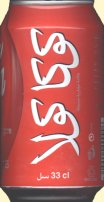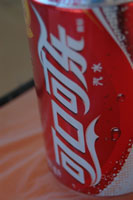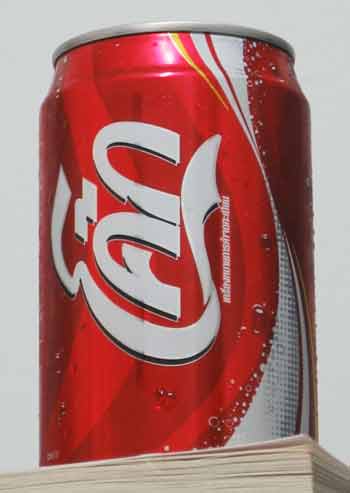Figuring osmolarity
if you know molarity
If you need to figure out the osmolarity of a solution and you're given the molar concentration, its pretty simple,
just multiply the molarity by however many "pieces" the solute dissociates into.
What is the osmolarity of a 2.6 M solution of table salt(NaCl)?
(To make this problem interactive, turn on javascript!)
- I need a hint ... : Salt dissolves into 2 "bits".
- ...another hint ... : Read the section above again!.
I think I have the answer: 2.6 M * 2 = 5.2 OsM
 |
 |
 |
|---|
If you know amount of solute
What if you just know the amount of a solute that was added? For example: what is the approximate osmolarity of a can of coca cola? According to the can which just happens to be sitting next to me, there are 37g of sugar in 12oz of classic coke. (Remember we've calculated before that sugar has a molecular weight of 180g). Hmm, time to crank out some conversions:
First, grams to moles: 37g * 1 mole/180g = 0.205 moles
Next, ounces to liters: 12 oz * 1 liter / 33.8 oz = 0.36 liters
Finally, we know that sugar does not break apart, so 1M = 1 OsM.
Now that everything is in the right units, we just need to divide moles by liters to get the osmolarity:
0.205 moles / 0.36 liters = 0.57 OsM.
Think about that next time you have a coke and a Krispy Kreme for breakfast!
What is the osmolarity of a glass of skin milk? (13g of lactose in 236 mL)
(To make this problem interactive, turn on javascript!)
- I need a hint ... : Lactose is a kind of sugar and has a molecular weight
of about 342g per mole.
- ...another hint ... : 13g lactose * 1 mole/342g = 0.038 moles, which do not dissolve into smaller "pieces".
I think I have the answer: 0.038 moles / 0.236 litters = 0.16 OsM
Copyright University of Maryland, 2007
You may link to this site for educational purposes.
Please do not copy without permission
requests/questions/feedback email: mathbench@umd.edu